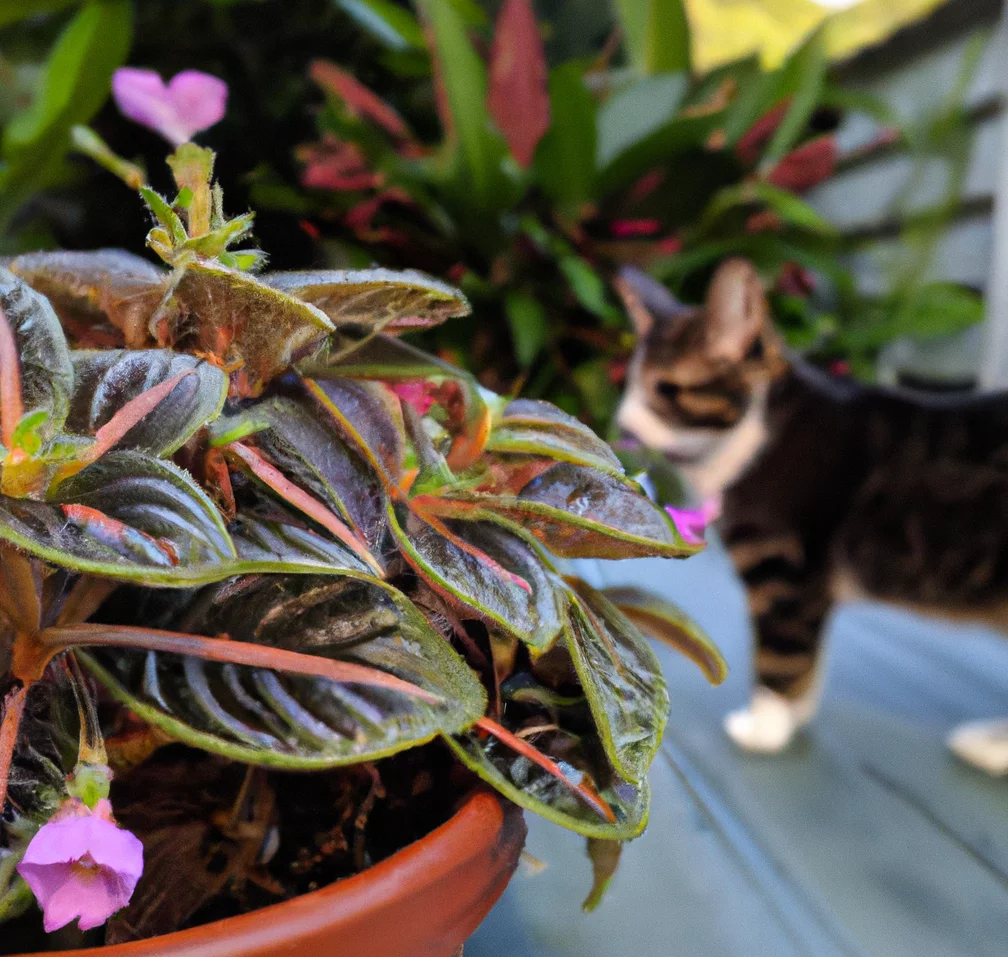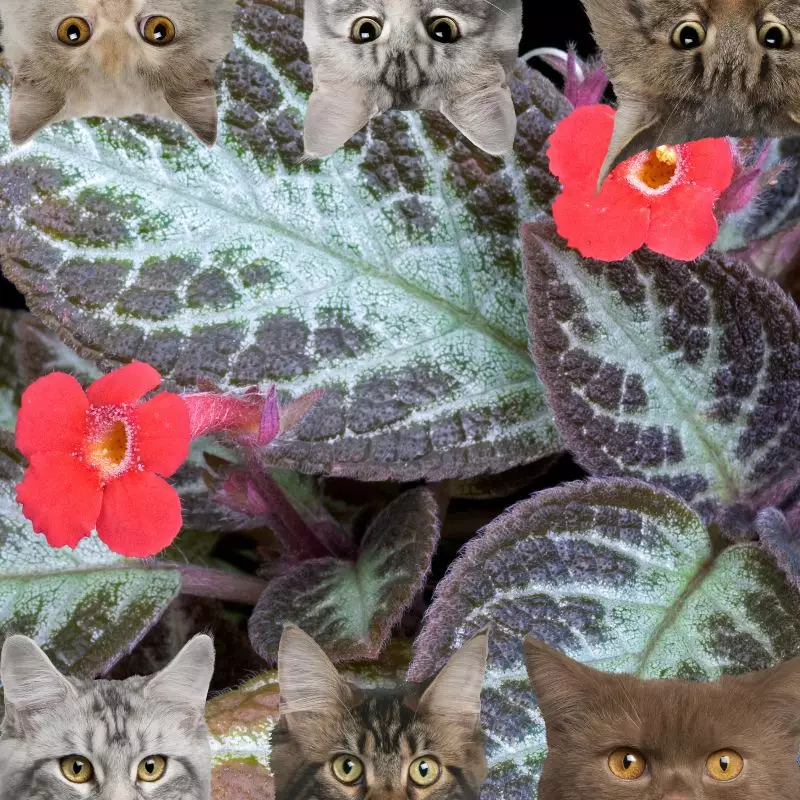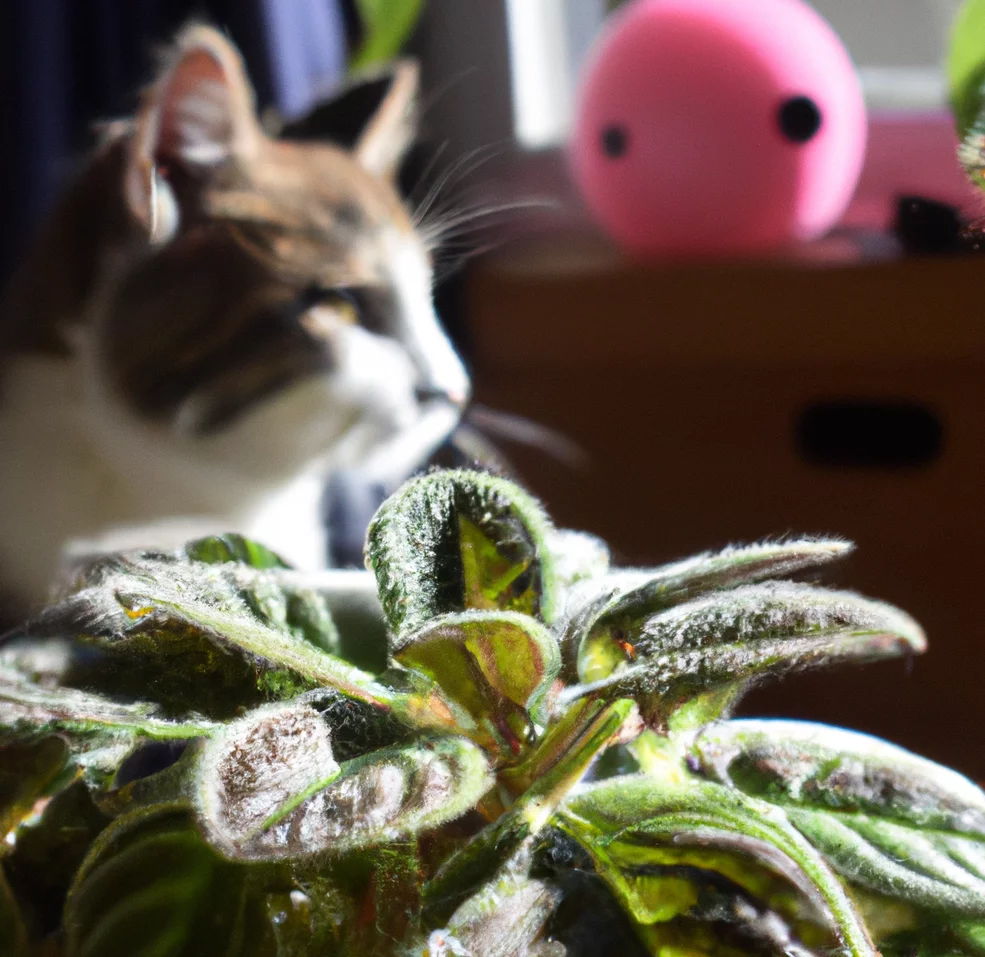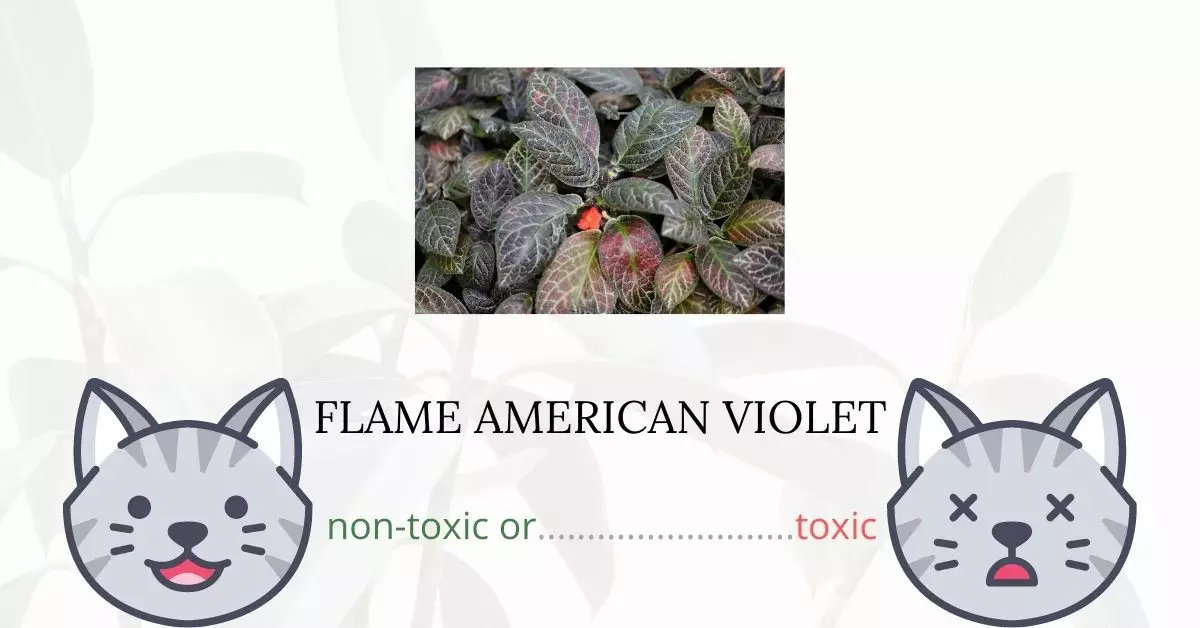No, the Flame African Violet (also known as Flame Violet) is non-toxic to cats.
This article has been crafted in collaboration with a team of experienced DVMs (doctors of veterinary medicine). Their invaluable insights and expertise ensure that we provide accurate, comprehensive, and up-to-date information on the potential risks associated with various plants, including the Flame African Violet, and their effects on feline companions. To further ensure reliability, our research incorporated data and statements from high-authority sources such as the ASPCA and PetMD.
According to the ASPCA (American Society for the Prevention of Cruelty to Animals), the Flame African Violet is safe not only for cats but also for dogs and horses, making it a safe plant to have in homes with kids and pets.
Can Cats Eat Flame African Violet or Flame Violet?

You can ease if your cat vacuumed up a few leaves. Flame African violets are as gentle as they are stunning, so it’s totally OK. You don’t need to run to the vet if your cat eats a small amount of African flame violet. Every time your cat consumes something other than its regular diet, there is a chance that it can upset its stomach or cause some minor diarrhea, so you should keep an eye on them to make sure they don’t have any uncommon allergic responses. The likelihood of any severe symptoms is low.
What is Flame African Violet or Flame Violet?

Flame African Violet (Episcia reptans) is a genus of flowering plants in the Gesneriaceae family of African violets. Its 10 species are indigenous to Central and South America’s tropical climates. The species are stoloniferous perennial herbaceous plants that typically have marked or patterned leaves along with red (occasionally orange, pink, blue, or yellow) flowers. They are referred to as flame violets at times. They are frequently grown elsewhere, and occasionally they naturalize in warm climates. Their lovely foliage is the main reason they are planted as indoor houseplants in temperate and tropical climates.
Keeping Cats Away From Flame African Violet or Flame Violet

It’s okay to have this tropical beauty in a house with cats. However, it’s a good idea to keep your houseplant out of the reach of curious kittens in order to protect it. In order to prevent your cat from destroying your nice plants, it would be better if you put up some reinforcements.
Many businesses provide shelves, hanging baskets, and other devices to support plants and prevent your cat from getting to them. Using jute or macrame, you can even create some pretty spectacular DIY hanging baskets.
Keep in mind that cat grass can always excite a cat’s interest if it is persistently bothering your indoor plants. A little roughage in the diet never harms anyone, and cat grass is inexpensive, simple to grow, and attractive to felines.
Plants to Avoid For Your Cats
If you are a cat owner and unsure if the plants growing in your yard are harmful to your cats, check out this list of toxic plants for cats. You can also check our list of non-toxic plants for cats.





